Final year project
Milk O'Clock: The Plant-Based Milk Maker [Read more]
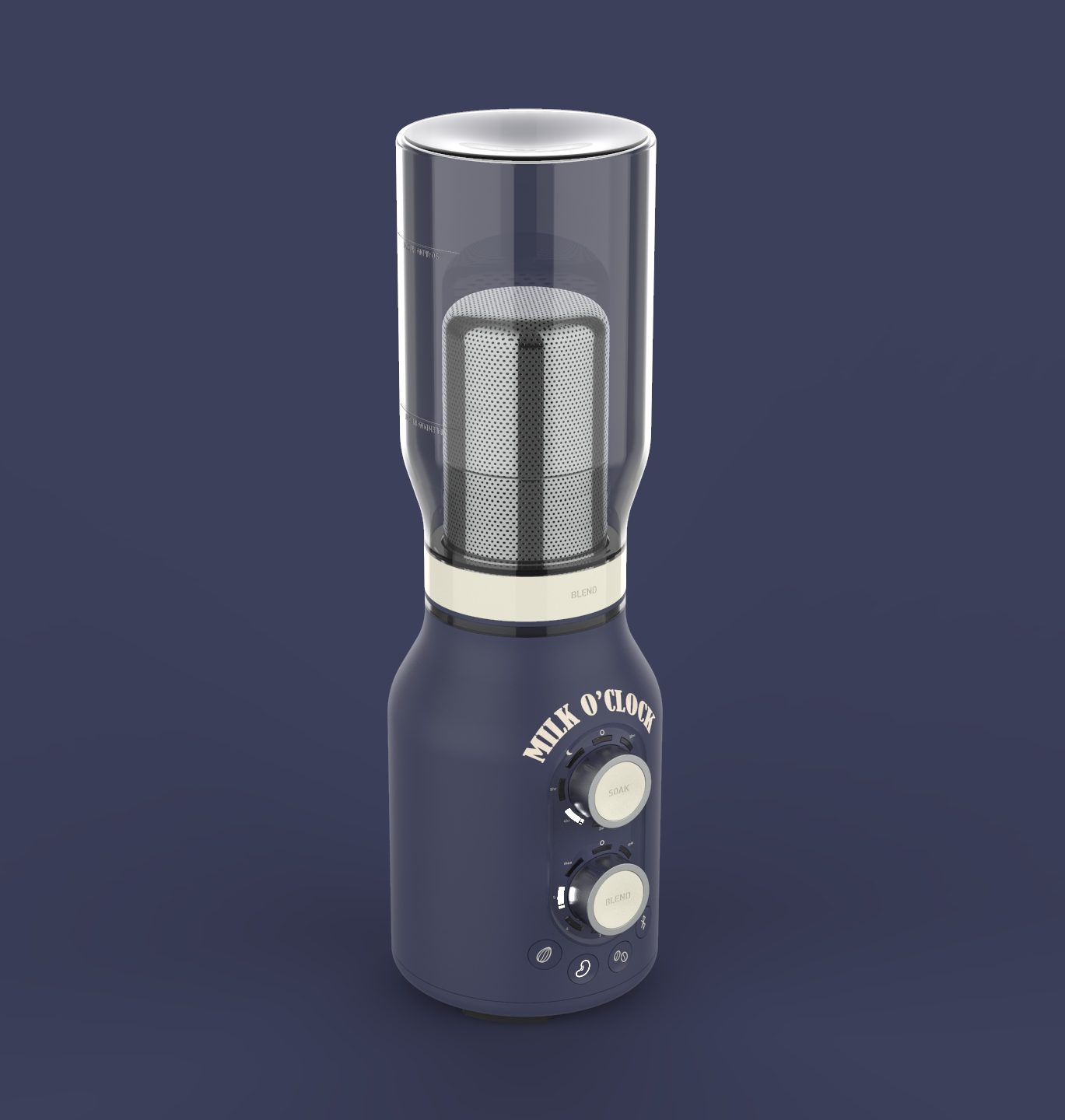
Milk O'Clock - The Plant-Based Milk Maker
Milk O'Clock is my final year design project. It is a product designed to act as a tool to aid users in creating their own plant-based kinds of milk - whether it's almond, cashew, oat, or any nut at all - at home. The product encompasses the three main processes of homemade milk-making into one compact and stylish product that is designed to be an attractive fit in the modern kitchen environment. Milk O'Clock enables you to soak, blend and filter the nuts in a clean and efficient way and the milk can be stored in an artisan-like container that really expresses the quality of your homemade, preservative-free milk.
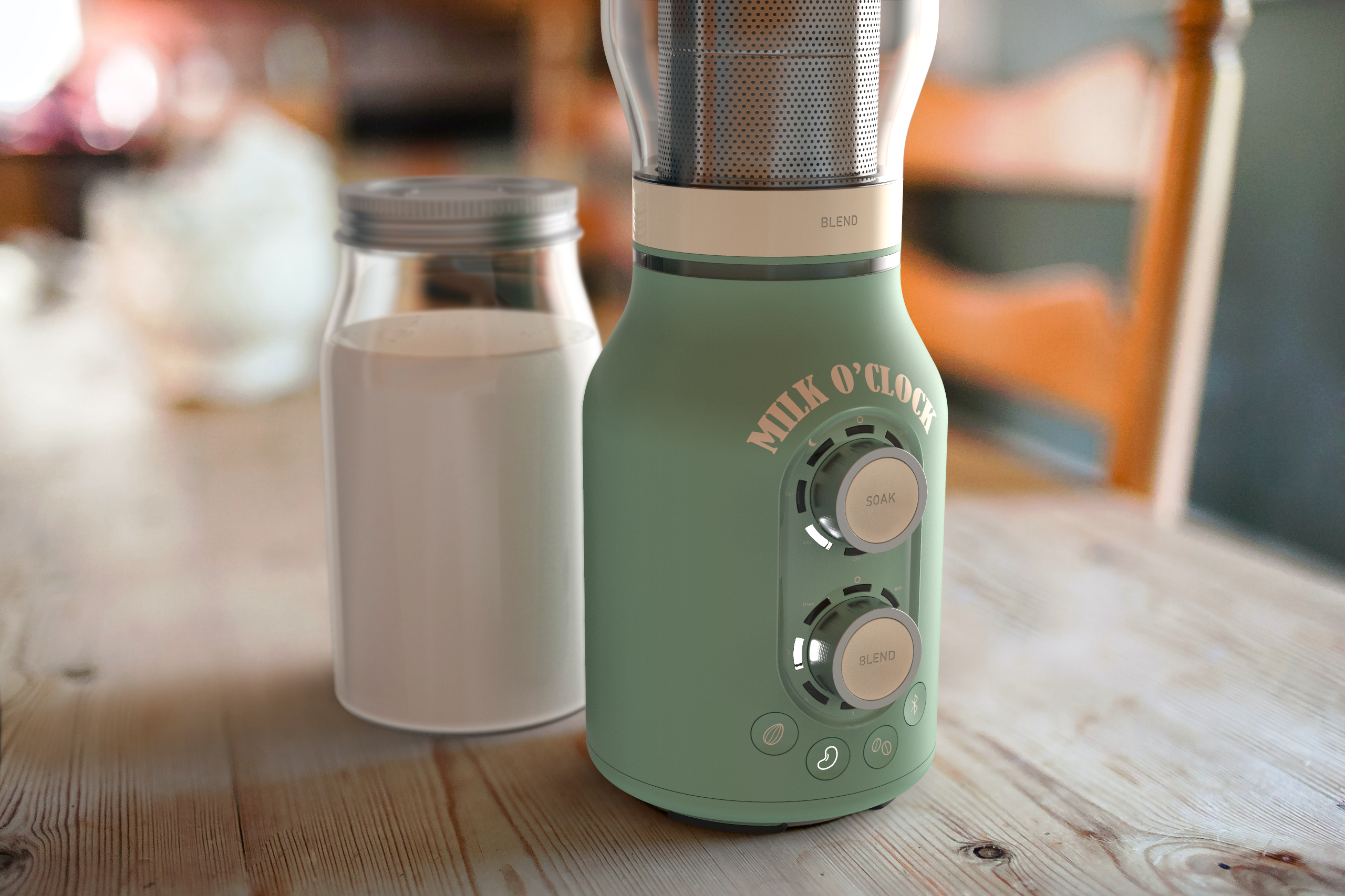

Milk O'Clock - The Interface
The interface was developed through a series of self-critiques, discussions with peers and interactive online user testing in order to achieve the best results. The UI enables gives as much freedom as possible for the user to make their milk just the way they like it, whilst also providing presets for the most popular kinds of milk for ease of use. The two dials give control over the soaking time and the blending speed respectively, which all determine the desired creaminess and texture of the milk. As the lengthy soaking process is essential to the quality of milk produced, a simple app-based system, linked to the physical product, is incorporated that enables the user to set daily reminders so they never forget to soak the nuts at an ideal time for them.


Milk O'Clock - The Process
An extensive design process was undertaken in order to achieve the final design of the Milk O'Clock. The problems users face with the current method of making milk at home had to be observed and there had to be clear motivations for a product that could make this process easier. Through surveys and conversations with plant-based milk drinkers, one thing was clear: the concept needed to be a gateway product that encouraged a wider audience to experiment with making their own milk at home, whilst also removing the stigma that plant-based kinds of milk are 'just for vegans' - they're for anyone!
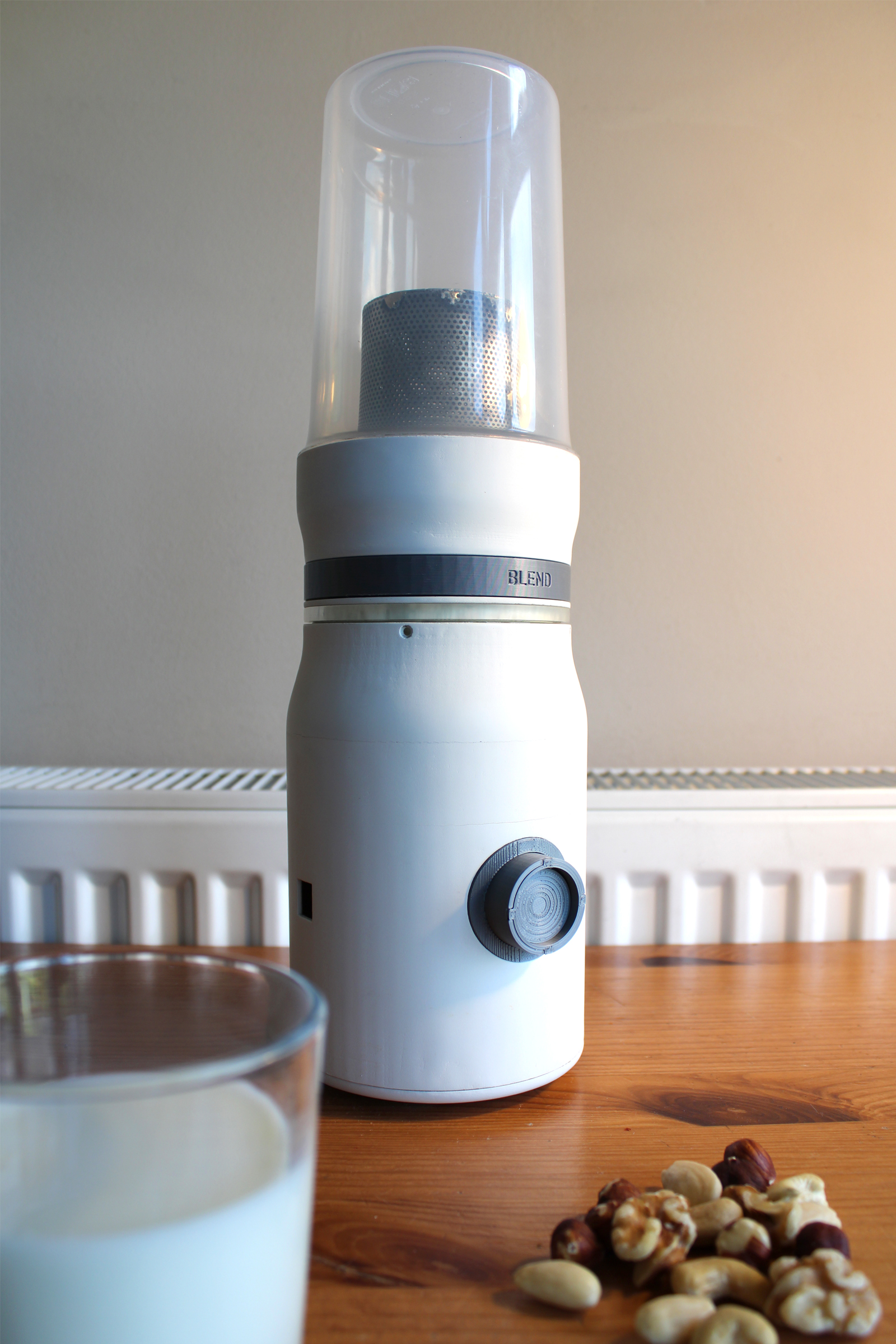

Milk O'Clock - The Prototype
A working prototype was produced in order to evaluate several aspects of the design. The main focus was to test the filter in conjunction with the blending module in order to assess the quality of milk produced. Several meshes were evaluated prior to this, based on material and hole size, and consequently, the one that was most successful at preventing nutty pulp from passing into the milk was chosen. The prototype also enabled me to test secondary elements of the design, such as the composition of the dial button mechanism, the LED ring and the general stability of the prototype.
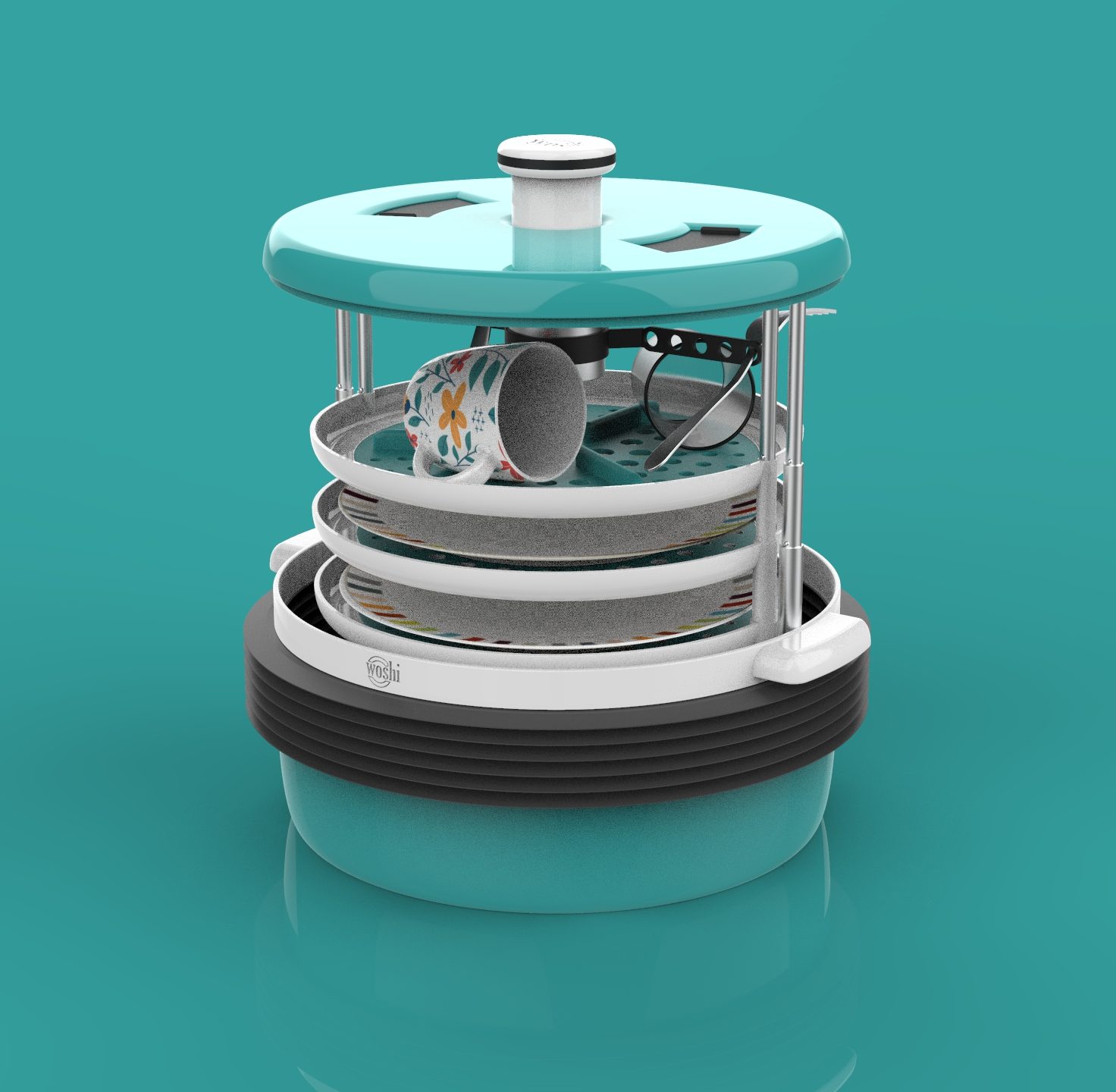

Woshi - The Hand Powered Dishwasher
Woshi is my second year design week project and is a sustainable alternative for the conventional dishwasher, specifically targeted at students. The idea stemmed from trying to find a compact, eco-friendly and affordable solution that could potentially solve the disorder you find in most student kitchens! The product sits in the sink and allows an individual to load a day's worth of dishes into it to wash. Using retractable poles, Woshi can pack down to a small size and stored away when not in use.
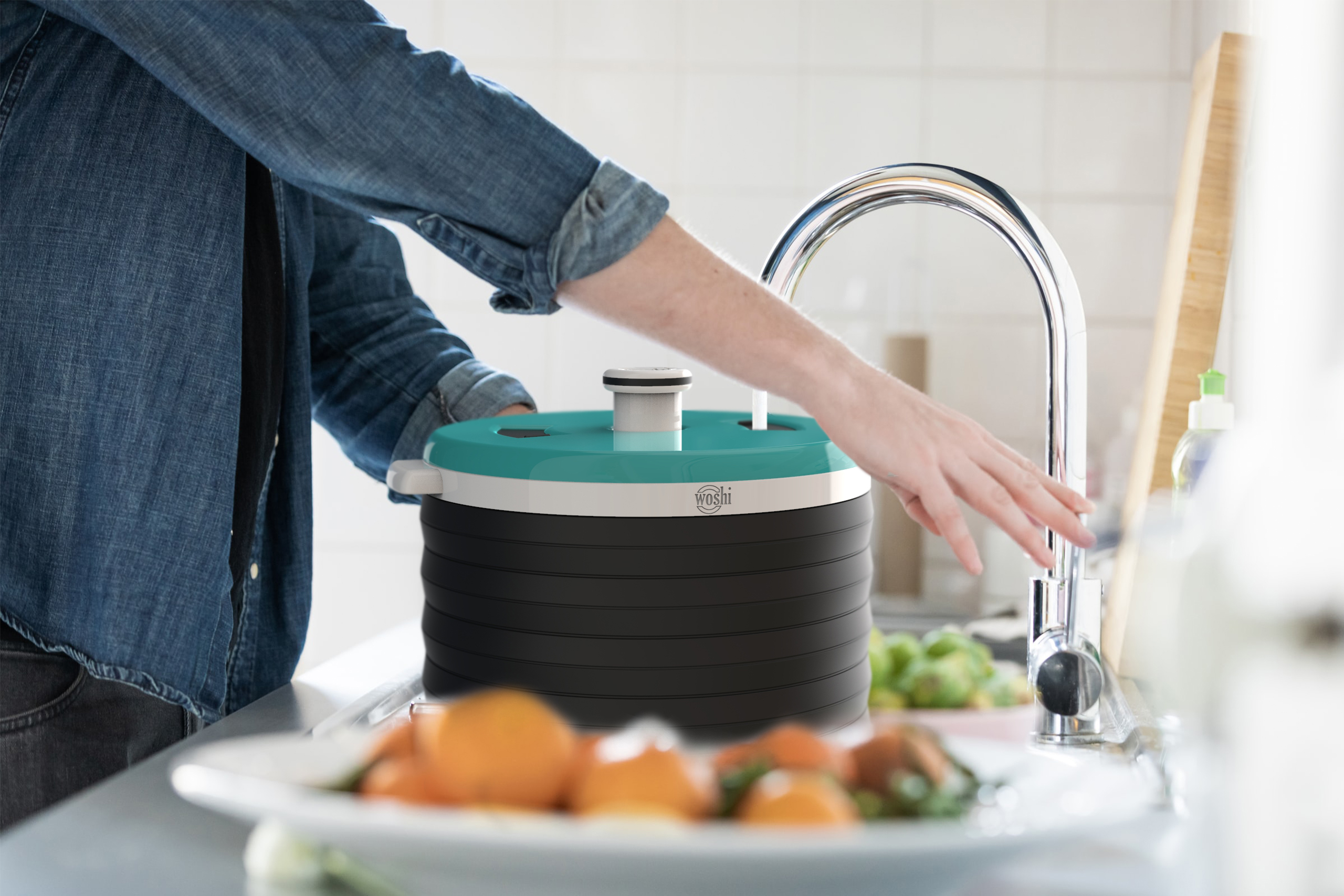

Woshi - How It Works
To use Woshi, the user needs to load a small selection of plates and cutlery into the dedicated shelves before pulling up the polypropylene sheath to enclose the centrifuge. Soap and a steady stream of tap water can be applied through the top of the product before the user can then repeatedly press the button to spin the inner centrifuge - just in the way a conventional salad spinner would operate. Any leftover food particles will be captured on the mesh at the bottom of the product for appropriate disposal and waste water can simply flow out the base into the sink.
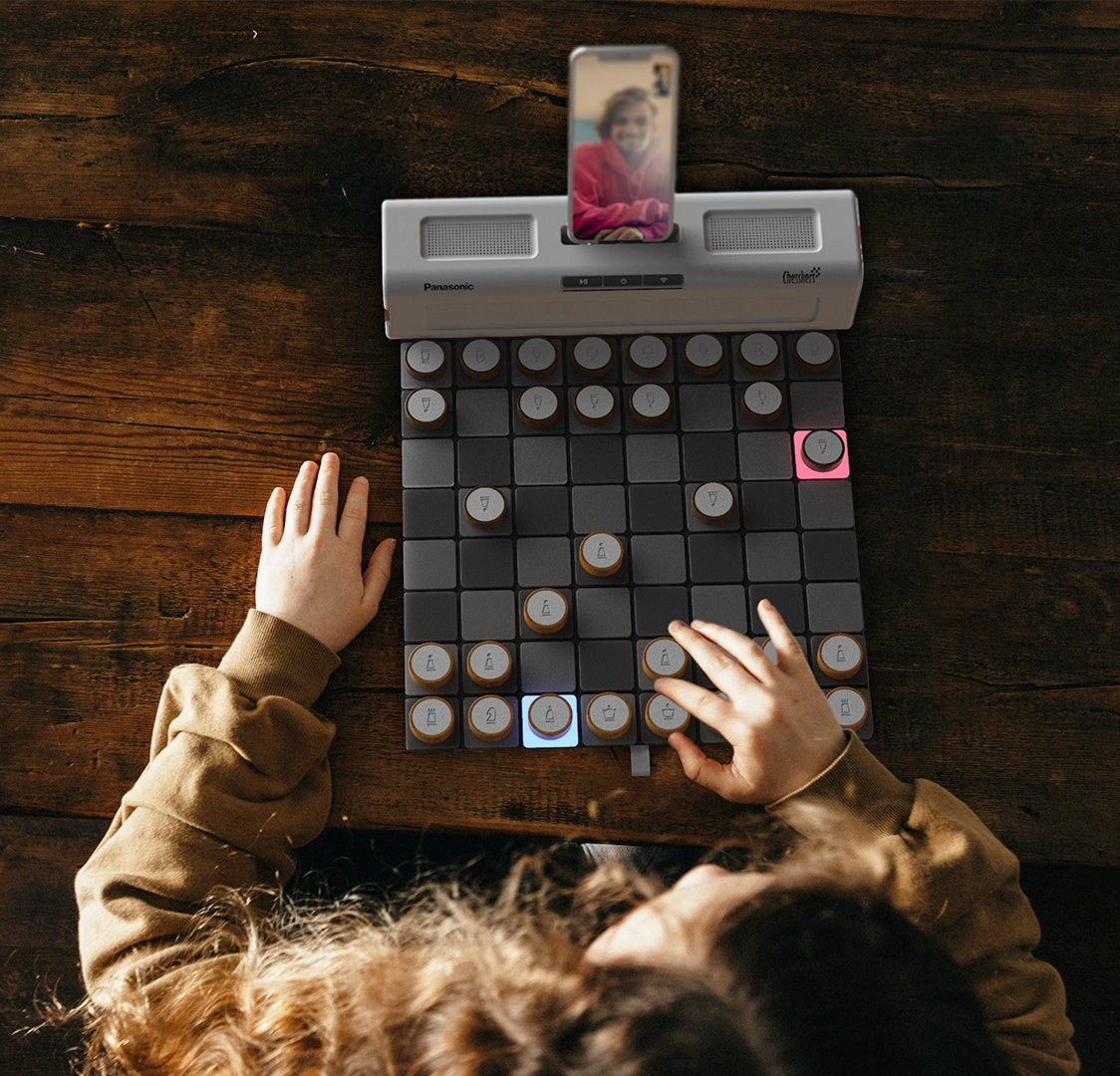

Chesskers - The Digital Reinvention of the Board Game
Chesskers is the result of a live project brief titled 'Better Relations'. The product is an interactive chess and checkers board game designed to provide some moments of joy with your family, friends and loved ones when apart from one another. The integrated docking system, sound system and touch-sensitive board enable the user to share the fun of two traditional board games, revitalised for the modern era.
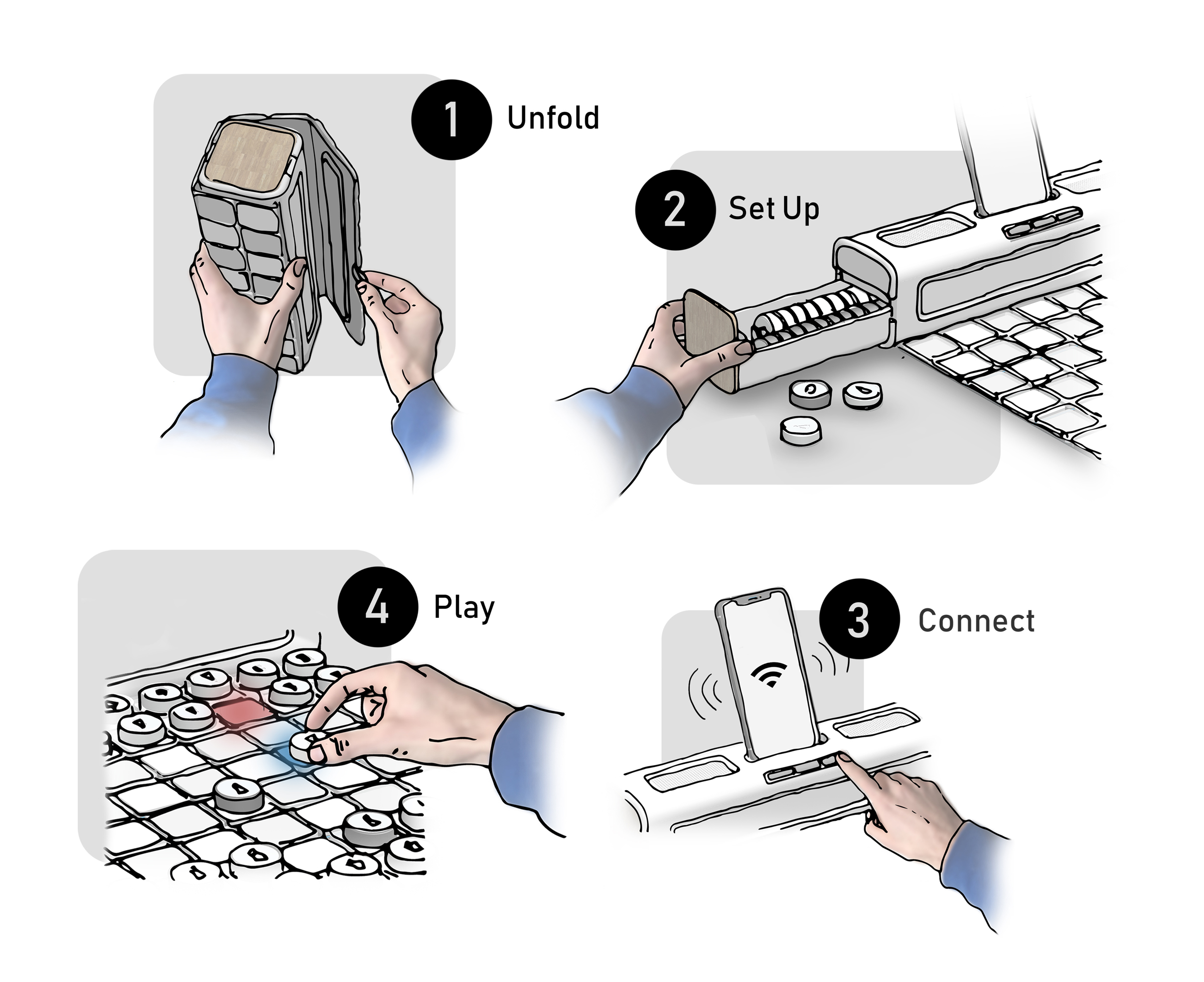

Chesskers - How To Play
The board first needs to be unfolded from its compact storage form before the drawer in the side of the hub can be opened to reveal the pieces. The orientation of the pieces depends on whether you want to play chess or checkers with your friend. Either way, you can then place your phone on the docking station, FaceTime your loved one and hit play! When your opponent makes a move on their board, it will light up a piece on yours and you can move their physical pieces accordingly.
Joe Cooke
An aspiring product designer striving to revolutionise the way we live.
I've known that design was the direction I wanted to take my life in since a very young age. A perfect fusion of the arts and the sciences, design satisfies my need to be endlessly creative whilst grounding me in the reality of this everchanging world. One of the biggest motivations I have as an aspiring designer is that we as a generation are presented with an enormous and exciting opportunity to innovate the world into a better place. For this reason, a lot of the projects I have done have focused on the re-imagining of existing products to capitalise on the desire the next generation of consumers have to lead healthier, greener and more enjoyable lives.
Final year project
Milk O'Clock: The Plant-Based Milk Maker
Work Experience
My placement year was spent in Utrecht, The Netherlands, at the R&D hub of Jacobs Douwe Egberts (JDE), the company behind the coffee industry’s biggest brands. Working with a small team of industrial designers, I had the opportunity to work on a variety of live projects that allowed me to contribute towards the design and development of coffee machines, as well as conceptualising products and services that could change the future of the coffee experience for consumers.
My main project was focused on modularity. I explored whether the idea of periodically replacing parts could feasibly be transferred to a fully automatic coffee machine and whether it was commercially viable for JDE to pursue. Throughout the design process, I was able to build new skills, such as leading ideation workshops with professionals in their fields, understanding business motivations for new ideas and further developing my knowledge of 3D printing and rapid prototyping.